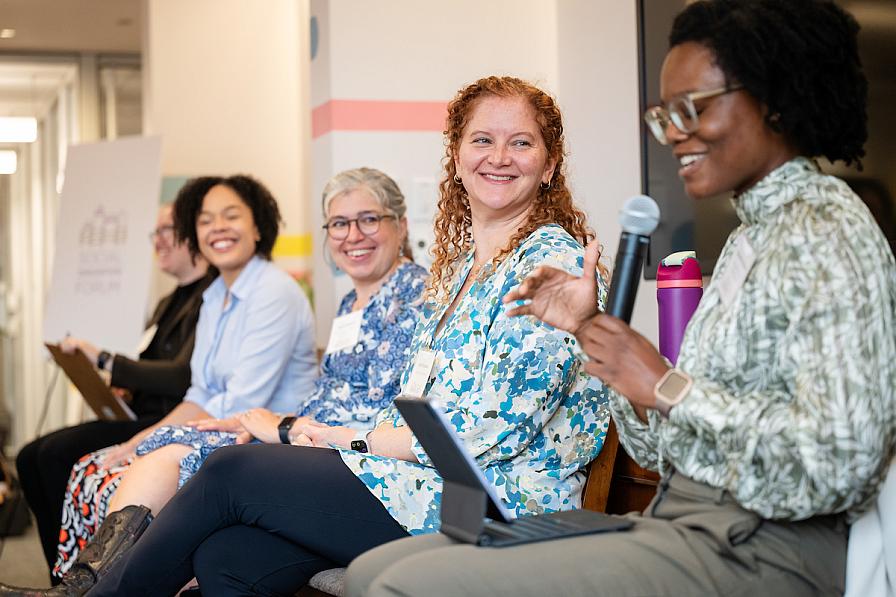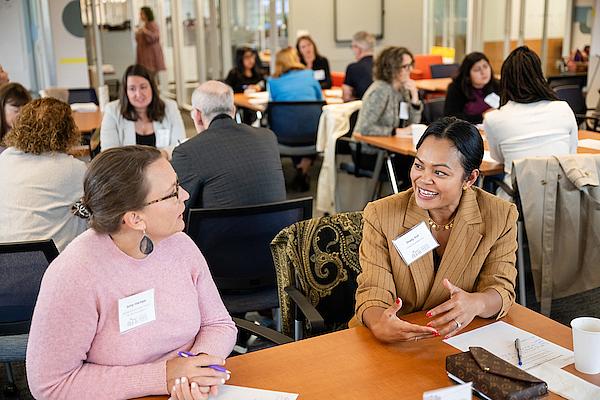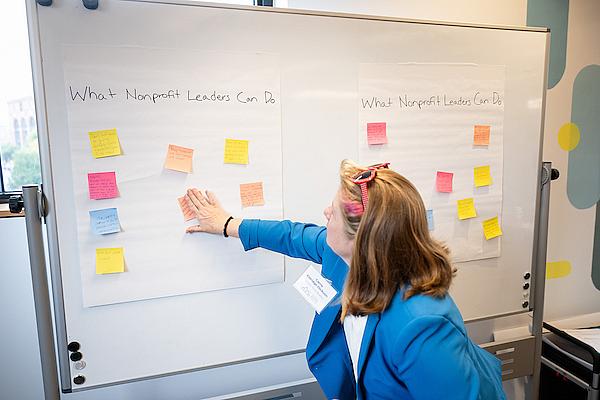
© Mike Ritter www.ritterbin.com
Shavel'le Olivier speaks as part of a panel at SIF's Rooted in Trust Event in September 2024.
Congratulations to our 2026 Social Innovators!

© Mike Ritter www.ritterbin.com
Shavel'le Olivier speaks as part of a panel at SIF's Rooted in Trust Event in September 2024.
The Social Innovation Forum (SIF) recently hosted “Rooted in Trust: Nurturing Funder-Nonprofit Relationships.” The event brought together funders and nonprofit leaders for a panel, table discussions, and networking.
As philanthropy shifts more towards trust-based relationships between funders and nonprofit leaders, the SIF network has been eager to learn more. High-trust environments advance both impact and equity, so SIF convened four panelists to share how they cultivate trust across power dynamics.
Funders Sheri Gurock (Executive Director, The Beker Foundation) and Lily Sargeant (Program Officer, US Partnerships, Wagner Foundation) described how they address power imbalances in their roles as funders. Nonprofit executive directors Shavel’le Olivier (Mattapan Food and Fitness Coalition) and Ruth Zakarin (Massachusetts Coalition to Prevent Gun Violence) gave examples of times they were transparent with funders.
Participants then discussed themes and worked together to generate questions for the panelists. After the Q&A, participants reflected on the session and shared their takeaways. A few main themes emerged for each group.

© Mike Ritter
Key Themes
What Funders Can Do
What Nonprofit Leaders Can Do

We are so grateful to everyone who joined us for this discussion and to our insightful panelists. We will continue to share our learnings as we all navigate cultivating trusting relationships.
About Network Engagement
“Rooted in Trust: Nurturing Funder-Nonprofit Relationships" was an SIF Network Engagement event in September 2024. Our Network Engagement programming has two main goals: peer learning and network building. We bring together nonprofit leaders and funders to learn from and with each other as we work together toward positive social change.
About the Author: Carina Traub is the Funder Learning Manager at the Social Innovation Forum, where she plans programming for funders. She has a deep appreciation for equitable partnerships and is eager to shift power dynamics together.